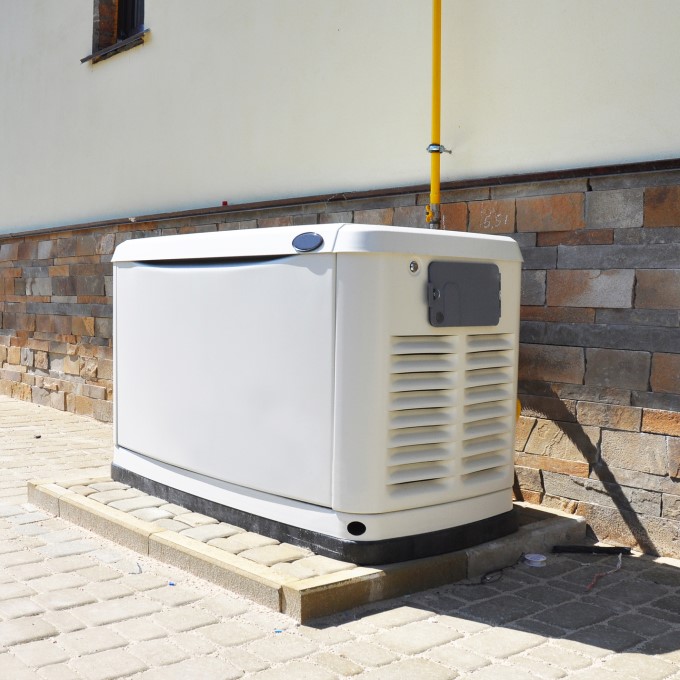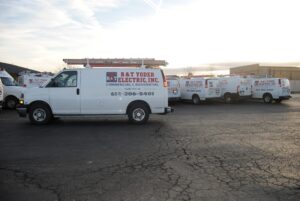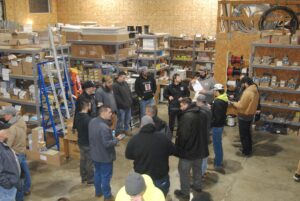
Looking to find the perfect generator for your home but aren’t sure how to determine the right size? Let us help guide you in finding the ideal generator for your home use. R & T Yoder Electric, Inc. is a trusted family-owned business with over 15 years of experience in the electrical industry. Founded by Rod and Tina Yoder, the company has grown to over 50 employees, including their sons Vincent and Mitchell. With their expertise, you can be confident in choosing the best generator for your household needs. Trust Yoder Electric to keep your home powered when you need it most.
Hey there! Have you ever wondered how to properly size a generator for your home? You want to make sure you have the right size to keep your essentials running during power outages without overspending on something you don’t need. Let’s walk through the generator sizing guide for home use together and make sure you have all the information you need to make an informed decision.
Calculating Your Power Needs
First things first, to determine the size of the generator you need, you must calculate your power needs. Consider the essential appliances and electronics in your home that you would need to run during a power outage. Make a list and note down the power requirements of each item in watts. Add up the total watts to determine your total power needs.
It’s important to remember that some appliances may have a higher starting wattage, so be sure to account for the surge power when calculating your power needs. Once you have your total wattage, you’ll be able to determine the appropriate generator size to meet your needs.
Sample Power Needs Calculation
Let’s walk through a sample calculation to give you a better idea.
| Appliance | Power (Watts) | Quantity | Total (Watts) |
|---|---|---|---|
| Refrigerator | 700 | 1 | 700 |
| Lights (LED) | 10 | 10 | 100 |
| TV | 200 | 1 | 200 |
| Microwave | 1000 | 1 | 1000 |
| Total Power Needs: | 2000 |
In this example, the total power needs are 2000 watts. Be sure to adjust the calculation based on your specific appliances and quantities.
Types of Generators
There are different types of generators available, ranging from portable to standby generators. Each type has its own advantages and disadvantages, depending on your needs and budget.
Portable Generators
Portable generators are versatile and can be moved from one location to another. They are typically gas-powered and are suitable for powering a few essential appliances during an outage. Portable generators come in various sizes, making them a good option for smaller homes or as a backup power source for specific needs.
Standby Generators
Standby generators are permanently installed outside your home and are connected to your home’s electrical system. They are powered by propane or natural gas and can provide continuous power for days. Standby generators are ideal for larger homes, businesses, or areas with frequent power outages.
Choosing the Right Size Generator
Once you’ve calculated your power needs and determined the type of generator that suits your requirements, it’s time to choose the right size. Generators are typically sized in kilowatts (kW), which is equal to 1000 watts.
Sizing Guide
Here’s a general sizing guide to help you choose the right size generator based on your total power needs:
- 3-5 kW: Suitable for powering a few essential appliances, such as lights, refrigerator, and a TV.
- 6-8 kW: Can power additional appliances, such as a microwave and a sump pump.
- 9-10 kW: Ideal for powering a moderate-sized home with essential appliances and electronics.
- 11-15 kW: Suitable for larger homes with multiple appliances and electronics.
- 16-22 kW: Ideal for powering an entire house, including HVAC systems.
Keep in mind that these are general guidelines, and your specific power needs may vary. It’s always best to consult with a professional to ensure you choose the right size generator for your home.
Installation and Maintenance
Once you’ve selected the right size generator for your home, it’s important to ensure proper installation and maintenance to keep it running smoothly.
Installation
Generators should be installed by a licensed electrician to ensure compliance with local building codes and safety standards. Proper installation includes connecting the generator to your home’s electrical system, fuel supply, and testing the system to ensure everything is working correctly.
Maintenance
Regular maintenance is essential to prolong the life of your generator and ensure it functions properly when needed. This includes checking the oil levels, fuel supply, air filters, and conducting regular tests to ensure the generator starts up smoothly.
If you have any questions or need further assistance, feel free to reach out to us at Yoder Electric. We’re here to help you every step of the way. Stay safe and powered up!







